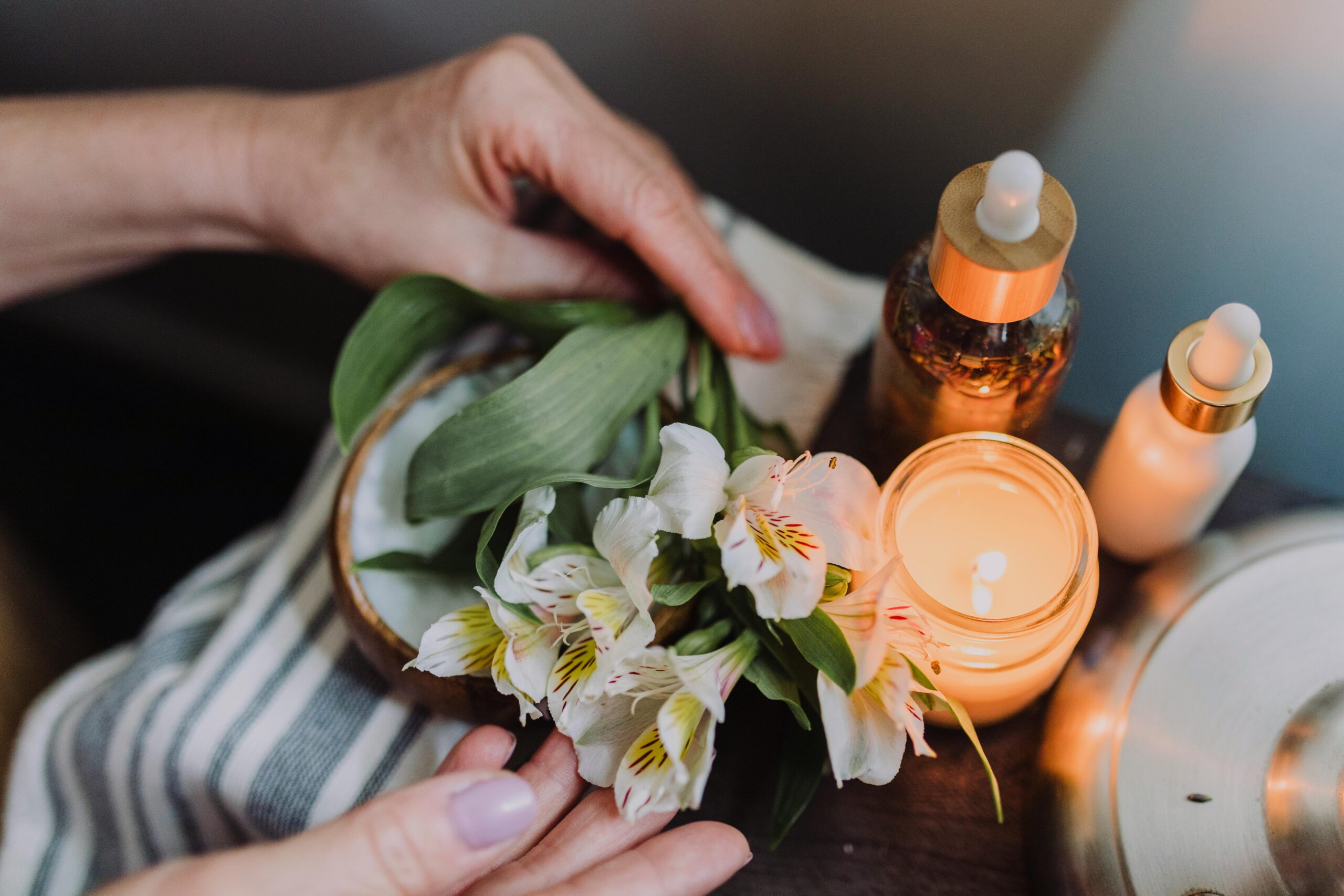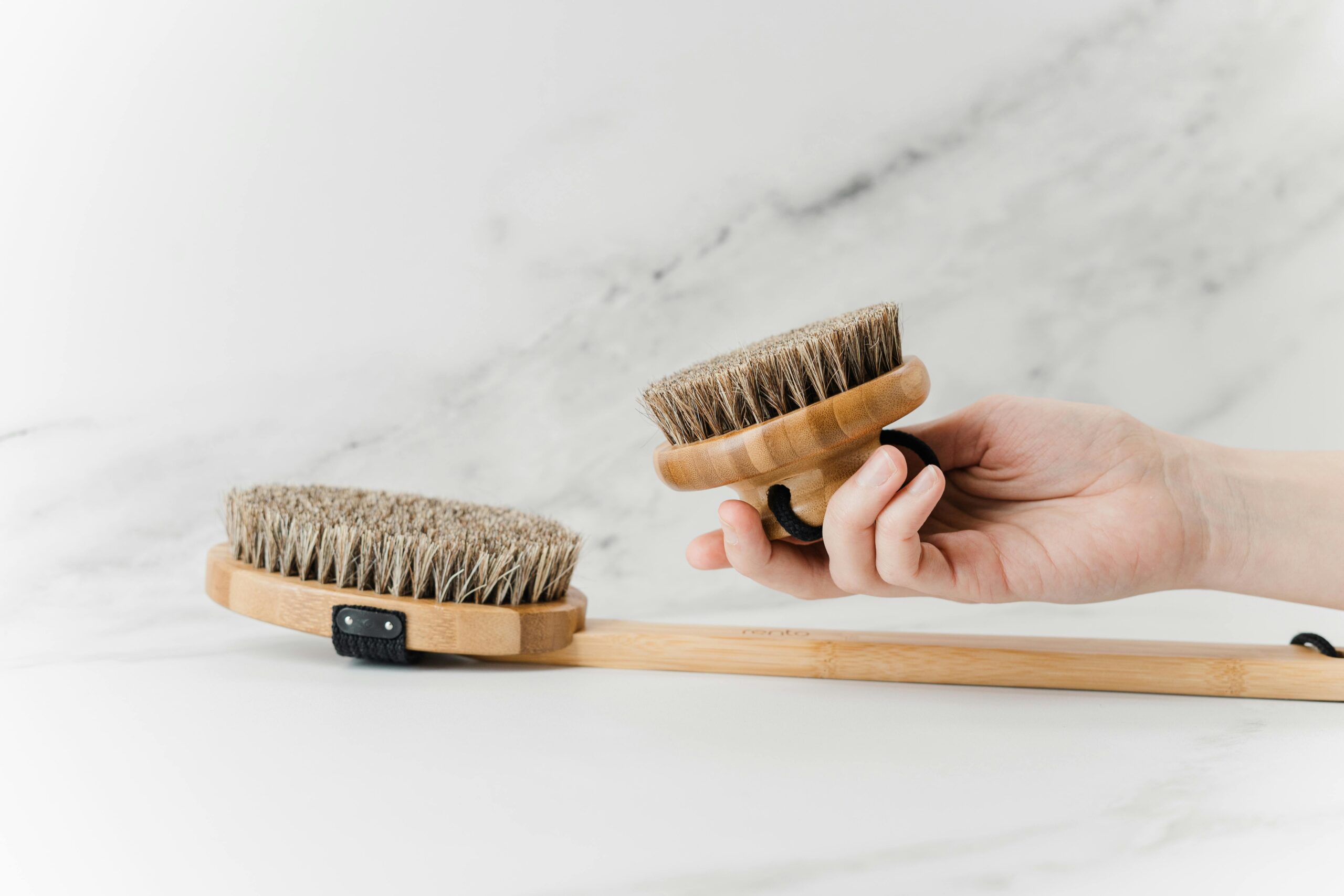Aromatherapy, the therapeutic use of essential oils, has been practiced for thousands of years. From ancient Egyptian rituals to modern wellness practices, the use of aromatic plant extracts to improve health is deeply embedded in human history. Today, aromatherapy has become a widely popular complementary treatment for enhancing mental and physical health. Whether through diffusers, topical applications, or bath products, essential oils are known for their ability to promote relaxation, reduce stress, improve mood, and even alleviate physical discomfort.
In this article, we will explore how aromatherapy works, the science behind its effectiveness, and its role in supporting both mental and physical well-being.
What Is Aromatherapy?
Aromatherapy is a holistic treatment that uses the natural extracts of plants, commonly known as essential oils, to improve health and wellness. Essential oils are concentrated liquids obtained through various methods such as steam distillation, cold pressing, or solvent extraction. These oils contain the essence of the plant’s fragrance and its medicinal properties, which can have a profound impact on the body and mind.
When used properly, essential oils are believed to influence the body’s physiological and psychological responses. The oils are typically inhaled or applied topically, though they can also be ingested under the guidance of a trained practitioner. The most common methods of aromatherapy application include:
- Diffusion: Using a diffuser to disperse essential oils into the air.
- Topical application: Applying oils directly to the skin, often diluted with a carrier oil.
- Inhalation: Breathing in the scent of essential oils directly or through steam.
- Baths: Adding essential oils to bath water for relaxation and rejuvenation.
The Science Behind Aromatherapy
Aromatherapy works by stimulating the olfactory system, which is the part of the brain responsible for processing smells. When we inhale the scent of essential oils, the molecules travel through the nose and are detected by sensory receptors in the olfactory bulb. This part of the brain is closely linked to the limbic system, which controls emotions, memory, and certain physiological responses such as heart rate and blood pressure. As a result, aromatic molecules can have a direct effect on emotional and physical states.
Moreover, many essential oils contain bioactive compounds such as terpenes, phenols, and esters, which have been shown to possess anti-inflammatory, anti-anxiety, antidepressant, and analgesic properties. These compounds can interact with the body’s physiological systems to promote healing, reduce inflammation, ease tension, and balance hormones.
In addition, essential oils can be absorbed through the skin, where they are transported into the bloodstream. This method allows for more localized treatment of physical discomfort or skin conditions, such as muscle soreness, headaches, or minor skin irritations.
The Mental Health Benefits of Aromatherapy
Aromatherapy is most commonly known for its positive effects on mental and emotional well-being. Here are some of the key ways in which essential oils can support mental health:
1. Reducing Stress and Anxiety
Chronic stress and anxiety are major contributors to poor mental health. Thankfully, aromatherapy offers an effective and natural way to calm the mind and reduce feelings of tension. Essential oils such as lavender, chamomile, and bergamot have been shown to promote relaxation and reduce symptoms of stress and anxiety.
- Lavender is one of the most well-known essential oils for stress relief. Studies have shown that lavender oil can reduce anxiety, lower heart rate, and decrease blood pressure. A study published in the journal Frontiers in Behavioral Neuroscience found that inhaling lavender oil could significantly reduce anxiety levels in people with generalized anxiety disorder.
- Bergamot has a calming effect on the nervous system and is often used in treating mood disorders like depression and anxiety. A 2015 study published in Phytomedicine revealed that bergamot essential oil has significant anti-anxiety effects, likely due to its ability to influence the body’s cortisol levels.
2. Improving Mood and Alleviating Depression
Essential oils can also help alleviate symptoms of depression and promote a more positive outlook on life. Rose, geranium, and sandalwood oils are known for their uplifting properties. Inhaling the scent of these oils or applying them topically can promote feelings of happiness and contentment.
- Rose oil is particularly effective in improving mood and reducing depressive symptoms. In a study conducted by the International Journal of Neuroscience, participants who inhaled rose oil reported feeling less depressed and more emotionally balanced.
- Sandalwood has been found to enhance mood and reduce mental fatigue. Research published in Evidence-Based Complementary and Alternative Medicine has shown that sandalwood essential oil may improve cognitive performance and emotional well-being.
3. Enhancing Focus and Mental Clarity
Aromatherapy can also improve concentration and cognitive function. Essential oils such as peppermint, rosemary, and lemon are known to stimulate the mind and increase alertness.
- Peppermint oil has been shown to enhance mental clarity, focus, and memory retention. A study published in the International Journal of Neuroscience found that peppermint essential oil can improve cognitive performance and reduce mental fatigue.
- Rosemary oil has a long history of use as a cognitive enhancer. It has been found to improve memory retention and support mental clarity. A study in the Therapeutic Advances in Psychopharmacology journal showed that the scent of rosemary oil could improve cognitive performance and alertness in individuals.
4. Promoting Better Sleep
Poor sleep quality is a significant contributor to mental health issues such as anxiety and depression. Aromatherapy can be a powerful tool in improving sleep quality. Essential oils like lavender, cedarwood, and clary sage have sedative properties that promote relaxation and restful sleep.
- Lavender oil is perhaps the most popular essential oil for improving sleep. A study published in The Journal of Alternative and Complementary Medicine found that lavender essential oil can significantly improve sleep quality and duration in individuals with insomnia.
- Cedarwood and clary sage also have calming effects that can ease insomnia and promote deep, restful sleep.
The Physical Health Benefits of Aromatherapy
While aromatherapy is often associated with mental well-being, it also offers a range of physical health benefits. Here are some of the ways in which essential oils can support physical health:
1. Alleviating Pain and Inflammation
Aromatherapy can be an effective treatment for managing pain and reducing inflammation. Essential oils such as peppermint, eucalyptus, and ginger have analgesic and anti-inflammatory properties.
- Peppermint oil is commonly used to alleviate headaches, muscle pain, and joint discomfort. The menthol in peppermint has a cooling effect on the skin, which can reduce pain and inflammation.
- Eucalyptus oil is known for its ability to relieve muscle pain and reduce inflammation. It is often used in treating conditions like arthritis and muscle strains.
- Ginger oil has warming properties that help reduce pain and inflammation, making it useful for treating conditions like arthritis, sore muscles, and even menstrual cramps.
2. Supporting Respiratory Health
Aromatherapy can help support respiratory health by clearing congestion and promoting better airflow. Essential oils such as eucalyptus, peppermint, and tea tree oil have decongestant and antimicrobial properties that can help treat respiratory conditions like colds, coughs, and sinusitis.
- Eucalyptus oil is a powerful decongestant that can help open up the airways and relieve symptoms of respiratory infections. It also has antiviral and antibacterial properties, which make it effective in treating colds and flu.
- Peppermint oil has menthol, which can help clear nasal passages and reduce symptoms of congestion, sinusitis, and asthma.
- Tea tree oil is known for its antimicrobial properties and can be used to help treat respiratory infections caused by bacteria or viruses.
3. Improving Skin Health
Essential oils can also support skin health by promoting healing, reducing acne, and alleviating skin irritation. Oils like tea tree oil, lavender, and chamomile are widely used in skincare for their healing and soothing effects.
- Tea tree oil has powerful antibacterial properties, making it effective in treating acne and skin infections. It helps to kill the bacteria that contribute to breakouts while reducing inflammation.
- Lavender oil is known for its soothing properties and can help heal minor burns, cuts, and skin irritations. It also has anti-inflammatory effects that can reduce redness and swelling.
- Chamomile oil is gentle and calming, making it ideal for sensitive skin. It can reduce skin irritation, redness, and even eczema flare-ups.
Conclusion
Aromatherapy is a versatile and natural approach to improving both mental and physical health. The therapeutic properties of essential oils can help reduce stress and anxiety, improve mood, enhance focus, promote restful sleep, alleviate pain, and support respiratory and skin health. Whether used in a diffuser, applied topically, or incorporated into a bath, aromatherapy offers a holistic solution for enhancing well-being.
As research continues to explore the many benefits of aromatherapy, it is clear that these fragrant plant extracts can play a significant role in supporting overall health. However, it is important to consult with a healthcare provider before using essential oils, especially for those with underlying health conditions or those who are pregnant or breastfeeding.
Incorporating aromatherapy into your wellness routine can be a simple, enjoyable, and effective way to promote mental and physical health—one breath at a time.




